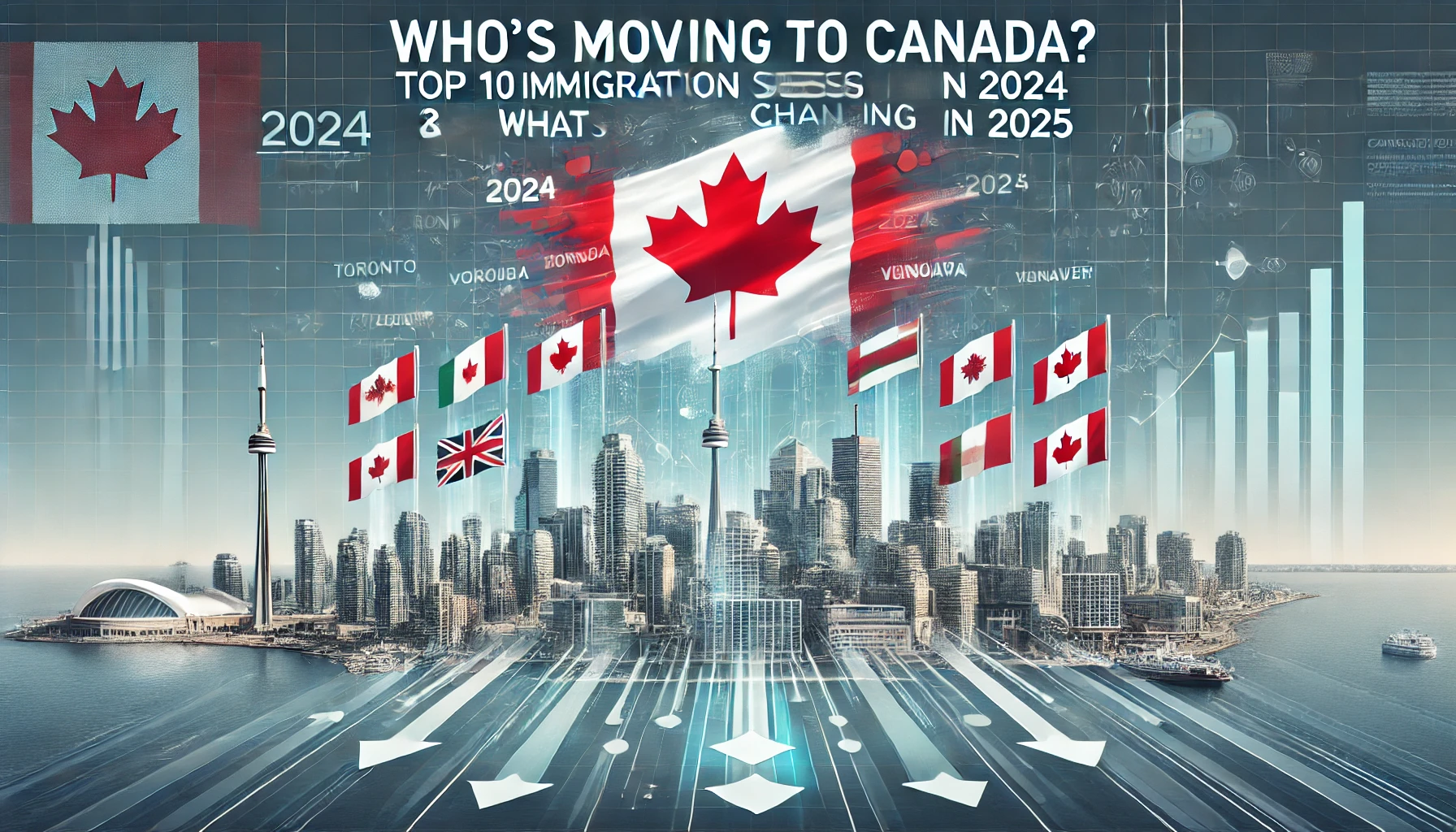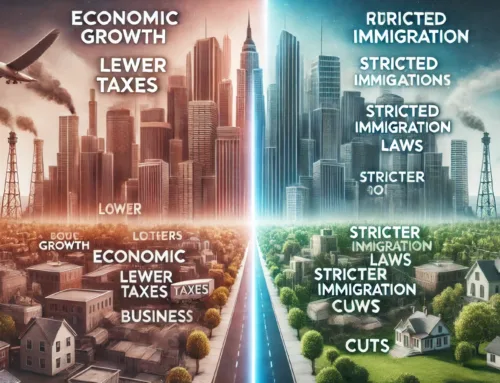
Foreign investors considering a business move to Canada should have a solid understanding of the immigration model in the country. This includes awareness of the primary countries of origin for new permanent residents, the strengths of various provincial industries, and the most recent policies that have, will or might pass. Gaining this knowledge will improve your ability to plan to establish and grow your business in Canada.
Top 10 Origin Countries of New Permanent Residents in 2024
At the end of 2024, Canada had almost reached its target immigration score of 485,000 new permanent residents. The top 10 source countries were:
- India: 127,320 new permanent residents
- Philippines: 32,300
- China: 29,950
- Cameroon: 21,200
- Nigeria: 20,380
- Eritrea: 16,585
- Afghanistan: 12,280
- Pakistan: 11,940
- Iran: 11,150
- France: 9,940
Notably, African nations like Cameroon, Nigeria, and Eritrea have demonstrated impressive expansion that underscores Canada’s appeal among a broader scope of international talent.
It is also interesting to note that the USA and the UK have both exited the top 10 during the last few years, while the top positions of India, Philippines and China remain strong.
Provincial Preferences and Industry Strengths
Understanding the economic landscape of Canadian provinces can help entrepreneurs align their business strategies effectively and choose their future destinations accordingly:
- Ontario: Admitted 205,700 new permanent residents. The province is a finance, technology, and manufacturing hub, with Toronto being a major financial centre.
- Alberta: Welcomed 66,350 new permanent residents. Known for its energy sector, particularly oil and gas, Alberta is also expanding on renewable technology and agriculture industries.
- British Columbia: Received 63,105 new permanent residents. The province excels in technology, movie production, and natural resources, with Vancouver particularly being a prominent tech hub.
- Quebec: Admitted 59,425 new permanent residents. Quebec has strengths in aerospace, information technology, and biotechnology, with Montreal as a key city for these industries.
- Manitoba: Welcomed 24,690 new permanent residents. The province is known for its agriculture, manufacturing, and transportation sectors.
- Saskatchewan: Received 23,155 new permanent residents. Saskatchewan’s economy is driven by agriculture, mining, and energy.
- New Brunswick: Admitted 15,490 new permanent residents. Key industries include forestry, mining, and information technology.
- Nova Scotia: Welcomed 14,285 new permanent residents. The province has a strong presence in ocean technology, fisheries, and tourism.
- Newfoundland and Labrador: Received 5,755 new permanent residents. Known for oil production, mining, and fishing industries.
- Prince Edward Island: Admitted 3,980 new permanent residents. The province focuses on agriculture, fisheries, and renewable energy.
Each province offers unique opportunities, and selecting the right location can be pivotal for your business success.
Shift in Immigration Policies for 2025
Starting in 2025, Canada will introduce a shift in immigration policies to cut back on the whole and favour long-term immigration over temporary programs such as student visas and temporary work permits. The government will give preference to applicants with particular sets of skills to fill specific gaps, and enhance the French-speaking community outside of Quebec with new pathways such as the (FCIP). Self-employed people with excellent and unique business potential will have increased opportunities for permanent residency through the Start-Up Visa Program.
Navigating Canada’s Evolving Immigration Landscape
Understanding Canada’s immigration trends, provincial industry strengths, and upcoming policies is vital for entrepreneurs planning to establish their ventures there, as the evolving landscape presents both opportunities and challenges.
To navigate this complex process effectively, get help from Start-Up Visa Services, which offers a pathway for innovative entrepreneurs to gain permanent residence in Canada through the Start-Up Visa Program.
Contact us directly for more information.
Link to our soon-to-be-posted article “The Francophone Community Immigration Pilot”
Start Up Visa Services
and how SVS can help?















